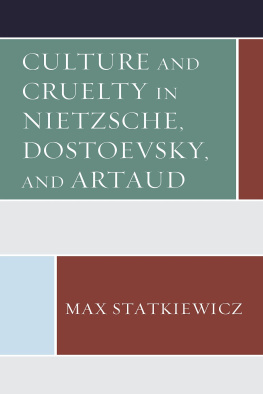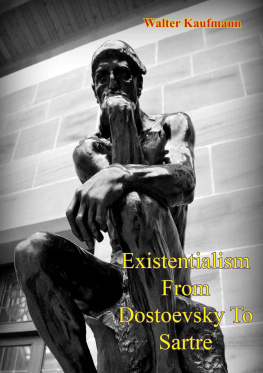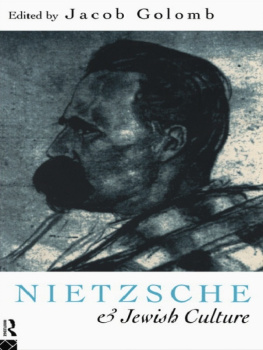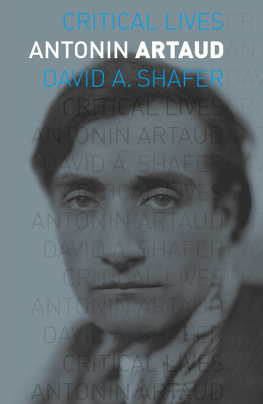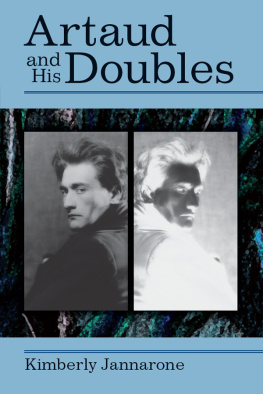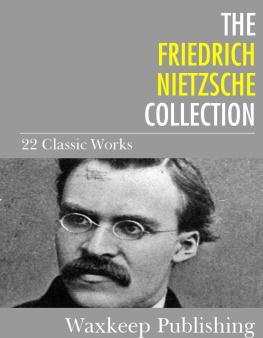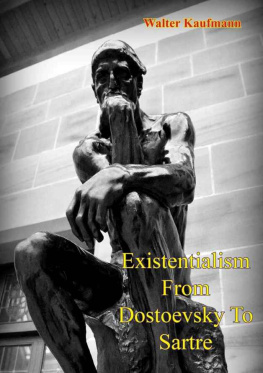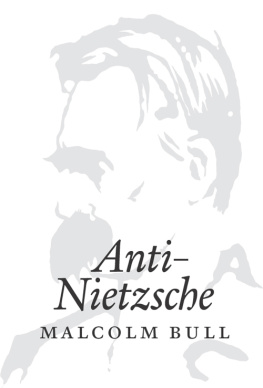Max Statkiewicz - Culture and Cruelty in Nietzsche, Dostoevsky, and Artaud
Here you can read online Max Statkiewicz - Culture and Cruelty in Nietzsche, Dostoevsky, and Artaud full text of the book (entire story) in english for free. Download pdf and epub, get meaning, cover and reviews about this ebook. year: 2020, publisher: Lexington Books, genre: Science. Description of the work, (preface) as well as reviews are available. Best literature library LitArk.com created for fans of good reading and offers a wide selection of genres:
Romance novel
Science fiction
Adventure
Detective
Science
History
Home and family
Prose
Art
Politics
Computer
Non-fiction
Religion
Business
Children
Humor
Choose a favorite category and find really read worthwhile books. Enjoy immersion in the world of imagination, feel the emotions of the characters or learn something new for yourself, make an fascinating discovery.
- Book:Culture and Cruelty in Nietzsche, Dostoevsky, and Artaud
- Author:
- Publisher:Lexington Books
- Genre:
- Year:2020
- Rating:3 / 5
- Favourites:Add to favourites
- Your mark:
- 60
- 1
- 2
- 3
- 4
- 5
Culture and Cruelty in Nietzsche, Dostoevsky, and Artaud: summary, description and annotation
We offer to read an annotation, description, summary or preface (depends on what the author of the book "Culture and Cruelty in Nietzsche, Dostoevsky, and Artaud" wrote himself). If you haven't found the necessary information about the book — write in the comments, we will try to find it.
Culture and Cruelty in Nietzsche, Dostoevsky, and Artaud — read online for free the complete book (whole text) full work
Below is the text of the book, divided by pages. System saving the place of the last page read, allows you to conveniently read the book "Culture and Cruelty in Nietzsche, Dostoevsky, and Artaud" online for free, without having to search again every time where you left off. Put a bookmark, and you can go to the page where you finished reading at any time.
Font size:
Interval:
Bookmark:

Culture and Cruelty in
Nietzsche, Dostoevsky,
and Artaud
Culture and Cruelty in
Nietzsche, Dostoevsky,
and Artaud
Max Statkiewicz
LEXINGTON BOOKS
Lanham Boulder New York London
Published by Lexington Books
An imprint of The Rowman & Littlefield Publishing Group, Inc.
4501 Forbes Boulevard, Suite 200, Lanham, Maryland 20706
www.rowman.com
6 Tinworth Street, London SE11 5AL, United Kingdom
Copyright 2020 by The Rowman & Littlefield Publishing Group, Inc.
All rights reserved . No part of this book may be reproduced in any form or by any electronic or mechanical means, including information storage and retrieval systems, without written permission from the publisher, except by a reviewer who may quote passages in a review.
British Library Cataloguing in Publication Information Available
Library of Congress Cataloging-in-Publication Data Available
ISBN: 978-1-7936-0392-0 (cloth : alk. paper)
ISBN: 978-1-7936-0393-7 (electronic)
 The paper used in this publication meets the minimum requirements of American National Standard for Information SciencesPermanence of Paper for Printed Library Materials, ANSI/NISO Z39.48-1992.
The paper used in this publication meets the minimum requirements of American National Standard for Information SciencesPermanence of Paper for Printed Library Materials, ANSI/NISO Z39.48-1992.
For Grayna Sonia
Everything that aims at attenuating the cruelty of the truth, at attenuating the harshness of the real, has the unavoidable consequence of discrediting the most brilliant of endeavors or the worthiest of causes.Clment Rosset, Joyful Cruelty
Faust:
Nun gut, wer bist du denn ?
Mephistopheles:
Ein Teil von jener Kraft,
Die stets das Bse will und stets das Gute schafft
Goethe Faust
NOTES
Rosset, Joyful Cruelty , 70; Le principe de cruaut , 7: Tout ce qui vise attnuer la cruaut de la vrit, attnuer les asprits du rel, a pour consquence immanquable de discrditer la plus gniale des entreprises comme la plus estimable des causes .
(lines 13351337): (my translation) Faust: Well, who are you then? Mephistopheles: Part of this force that always wants evil, and always works the good.
Contents
BT | The Birth of Tragedy and Other Writings (1871) Trans. Ronald Speirs. CUP, 1999. |
UM | Untimely Meditations (187376) Trans. R. J. Hollingdale. CUP, 1997. |
HAH | Human All Too Human (1878) Trans. R. J. Hollingdale. CUP, 1996. |
DB | Day Break: |
GS | The Gay Science (1882) Trans. Josephine Nauckhoff. CUP, 2001. |
Z | Thus Spoke Zarathustra . (188385) Trans. Thomas Common, Prometheus Books, 1993. |
Thus Spoke Zarathustra . Trans. Adrian del Caro. CUP, 2006. | |
BGE | Beyond Good and Evil (1886) Trans. Judith Norman. CUP, 2002. |
GM | On the Genealogy of Morals and Ecce Homo . (1887) Trans. Walter Kaufmann and R. J. Hollingdale, Vintage Books, 1989. |
On The Genealogy of Morality . Trans. Carol Diethe. CUP, 2017. | |
TI | Twilight of the Idols . (1881) Trans. Duncan Large. OUP, 1998. |
AC EH TI | The Anti-Christ, Ecce Homo, Twilight of the Idols and Other Writings . (1888) Trans. Judith Norman, CUP, 2005. |
PTG | Philosophy in the Tragic Age of the Greeks . Trans. Marianne Cowan, Regnery Publishing, Inc., 1962. |
WP | The Will to Power . Trans. Walter Kaufmann and R. J. Hollingdale. Vintage Books, 1968. |
WLN | Writings from Late Notebooks . Trans. Kate Struge. CUP, 2003. |
KS | Kritische Studienausgabe , in 15 Bnden. Ed. Giorgio Colli und Mazzino Montinari, de Gruyter, 196777. |
PN | The Portable Nietzsche . Trans. Walter Kaufmann, Viking Penguin, 1954. |
BWN | Basic Writings of Nietzsche . Trans. Walter Kaufmann, The Modern Library, 1966. |
BKG | Briefwechsel , Kritische Gesamtausgabe . Berlin: Walter de Gruyter, 1981. |
B | Briefe |
DWM | Der Wille zur Macht . Alfred Krner Verlag, 1996. |
DW | The Diary of a Writer . Trans. Boris Brasol. Charles Scribners Sons, 1949. |
. , 2011. | |
GSWFD | Great Short Works of Fyodor Dostoevsky . Ed. Ronald Hingley. Perennial Classics, 1968. |
CC | .. |
BK | The Brothers Karamazov . Trans. Richard Pevear and Larrisa Volokhonsky. Farrar, Straus and Giroux, 1990. |
. , 2006. | |
NU | Notes from Underground . Trans. Richard Pevear and Larrisa Volokhonsky. Vintage Books, 1993. |
. , 2006. | |
D | Demons . Trans. Richard Pevear and Larissa Volokhonsky. Vintage Books, 1995. |
, . , 2001. | |
HD | The House of the Dead . Trans. David McDuff. Penguin Classics 1985. |
The House of the Dead . Trans. Constance Garnett. Dover INC, 2004. | |
Notes from a Dead House . Trans. Richard Pevear and Larissa Volokhonsky. Alfred A. Knopf, 2015. | |
. . , 1983. | |
. , 2006. |
I am grateful to my students Regina Chiuminatto, Anna Grelson, Elizavetta Koemets, Jeni Legg, Valerie Reed-Hickman, Anna Redmond, Patricia Ruiz Rivera, Ian Atalla, Michael Becker, Daniel Dooghan, Brent Harlow, Thomas Massnick, Peter Orte, as well as Grayna Sonia Wasilewska Statkiewicz for discussing with me the project of this book.
The word culture has many meanings, but apparently one valuation. Culture is universally praised. Let us consider the possible models of culture by providing the most general cultural background. Others tried to rescue the term by circumscribing more rigorously its semantic field.
Two main clusters of meaning are usually distinguished in the term culture. First, an anthropological notion with scientific claims, often associated with the name of E. B. Tylor, who defined culture, in his Primitive Culture from 1871, as that complex whole which includes knowledge, belief, art, morals, law, custom and any other capabilities and habits acquired by man as a member of society. And what it should reveal most forcefully, according to Geertz, is the essential diversity of cultures as the presupposition of modern anthropology:
Font size:
Interval:
Bookmark:
Similar books «Culture and Cruelty in Nietzsche, Dostoevsky, and Artaud»
Look at similar books to Culture and Cruelty in Nietzsche, Dostoevsky, and Artaud. We have selected literature similar in name and meaning in the hope of providing readers with more options to find new, interesting, not yet read works.
Discussion, reviews of the book Culture and Cruelty in Nietzsche, Dostoevsky, and Artaud and just readers' own opinions. Leave your comments, write what you think about the work, its meaning or the main characters. Specify what exactly you liked and what you didn't like, and why you think so.

